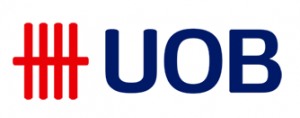 UOB and the Asian Bankers Association jointly organized a Short-Term Visiting Program (STVP) on “Building Banking Practices for a Greener Future” held in Singapore on September 27, 2023.
UOB and the Asian Bankers Association jointly organized a Short-Term Visiting Program (STVP) on “Building Banking Practices for a Greener Future” held in Singapore on September 27, 2023.
The one-day program centered around banking practices in the face of evolving environmental, social and governance challenges. UOB shared macro trends in sustainable development and transition to a low-carbon economy, its journey and aspiration towards net-zero, as well as experiences in integrating ESG considerations into risk management and financing solutions.
A total of 20 representatives from member banks and other financial institutions from six countries – namely, Cambodia, Maldives, Mongolia, Sri Lanka, Taiwan, and Vietnam participated in the one-day program. The attendees included officers from Hatton National Bank, Sampath Bank, Bank of Maldives, Golomt Bank, Commercial Bank for Foreign Trade of Vietnam (Vietcombank), Vietnam Export Import Commercial Bank, Vietnam Bank for Agriculture and Rural Development (Agribank), CTBC Bank, First Commercial Bank, Mega International and Commercial Bank, and The Association of Banks in Cambodia.
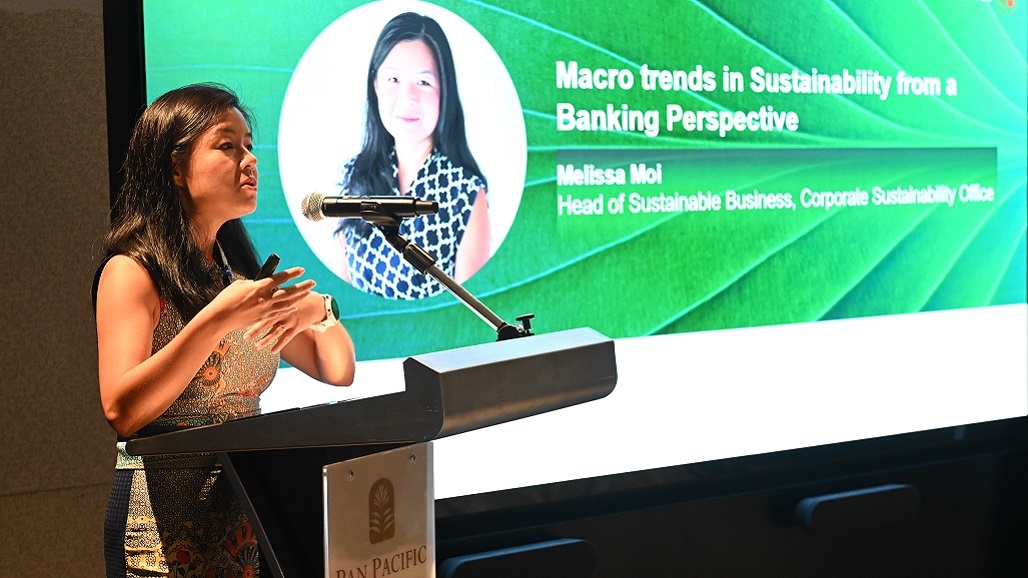
The UOB speakers who presented during the program, Ms. Melissa Moi, Head of Sustainable Business, Corporate Sustainability Officer, who spoke on “Macro Trends in Sustainability from a Banking Perspective” and on “UOB’s Sustainability Journey and Net Zero Commitments”; Mr. Martin Davis, Senior Vice President, Sector Solutions Group, who presented on “Green and Sustainability-Linked Financing for Financial Institutions”; and Management, who shared UOB’s experience and best practices on “Climate Risk Management and Stress Testing”.
At the end of the presentations, Ms. Li Huishi, Senior Vice President, Corporate Sustainability Office moderated the participants sharing session, during which participants broke into groups and shared their experience in each of the areas discussed earlier by the three UOB speakers.
On Macro Trends in Sustainability from a Banking Perspective, the participants were requested to discuss the following: (a) Which of the macro trends is likely to impact their home country in the near and medium term? (b) How do they foresee the response from regulators and the financial sector towards these macro-trends?
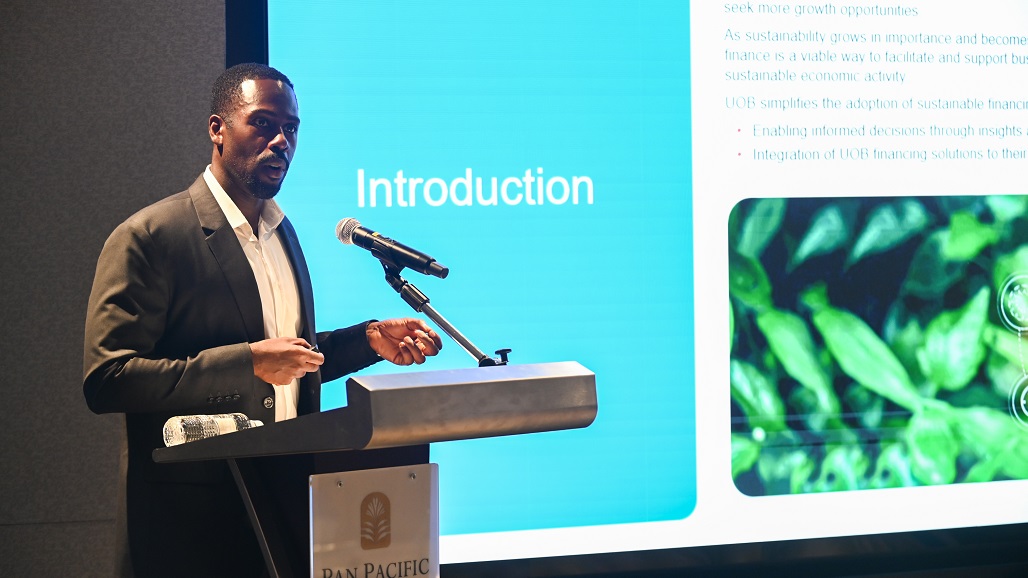
On the Green and Sustainable-Linked Financing for Financial Institutions, the participants were asked to share their views on: (a) Which one sustainable finance framework that would be most relevant to their organization, and why? (b) What are the challenges their organization may face towards developing and/or implementing these frameworks? And (c) What are some of the resources required to overcome this, and how can these resources be sought out?
On Climate Risk Management and Stress Testing, the attendees were requested to elaborate on their organization’s understanding an practices towards managing climate risk; (b) Beyond climate risk, are there other sustainability risk which requires focus from their organization; and (c) What are some of the resources required to get started?
Ms. Anna Choo, UOB’s Executive Director, Head Banks & NBFIs, Financial Institutions Group Singapore, and ABA Secretary-Treasurer Mr. David Hsu delivered the Welcome Remarks at the start of the Program. The Closing Remarks were made by Ms. Choo and ABA Deputy Secretary Mr. Amador Honrado Jr.
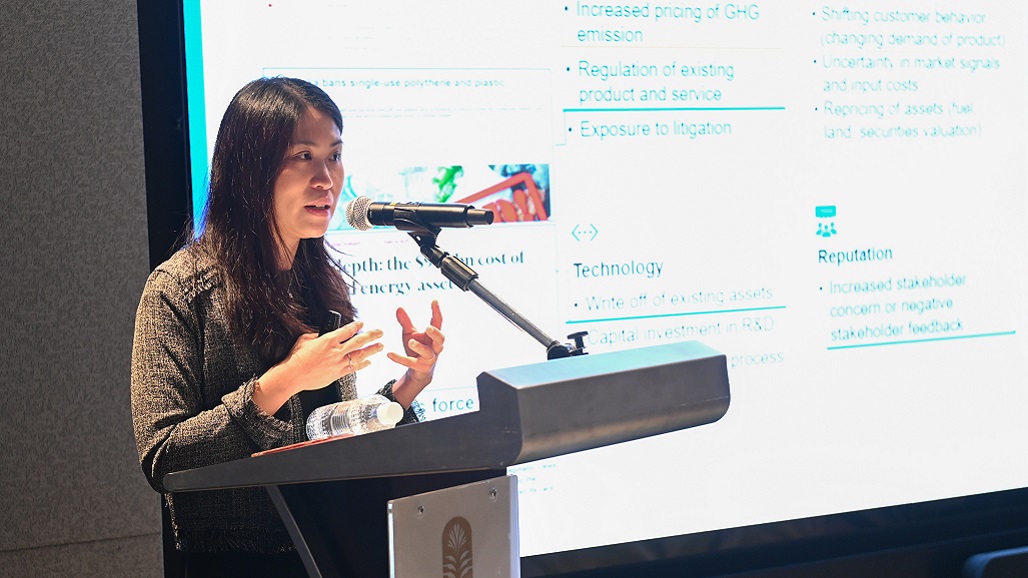
Each participant was presented with a Certificate of Attendance by Ms. Choo and Mr. Hsu at the end of the session. The ABA Short-Term Visiting Program is part of the Association’s Professional Development Program. Which includes training courses on banking and finance conducted with our member banks as well as with leading training institutes in the region.
The primary objective of ABA’s Short-Term Visiting Program – such as the one hosted by UOB – is to provide member banks, particularly those from less developed countries, the opportunity to study and undergo training on specific aspects of the operations and facilities of the host banks, and learn from their experience and best practices. The idea is to enable the participants to: (i) enhance and upgrade their technical skills and knowledge in specific business areas, in the distinct and peculiar social, economic and business environment of the host country, and (ii) gain first-hand knowledge of the operations, systems and work procedures of the host bank’s various line departments.
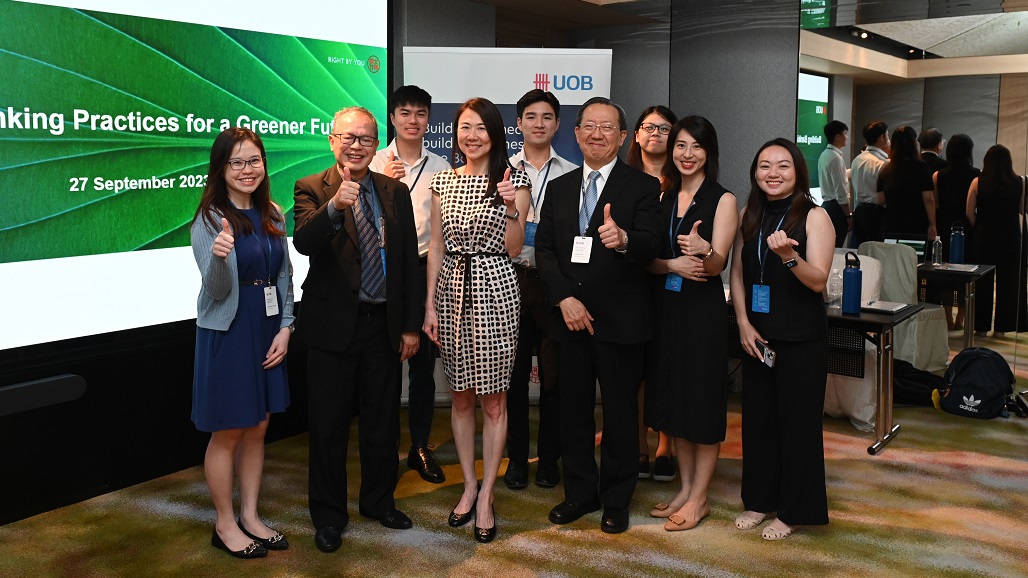
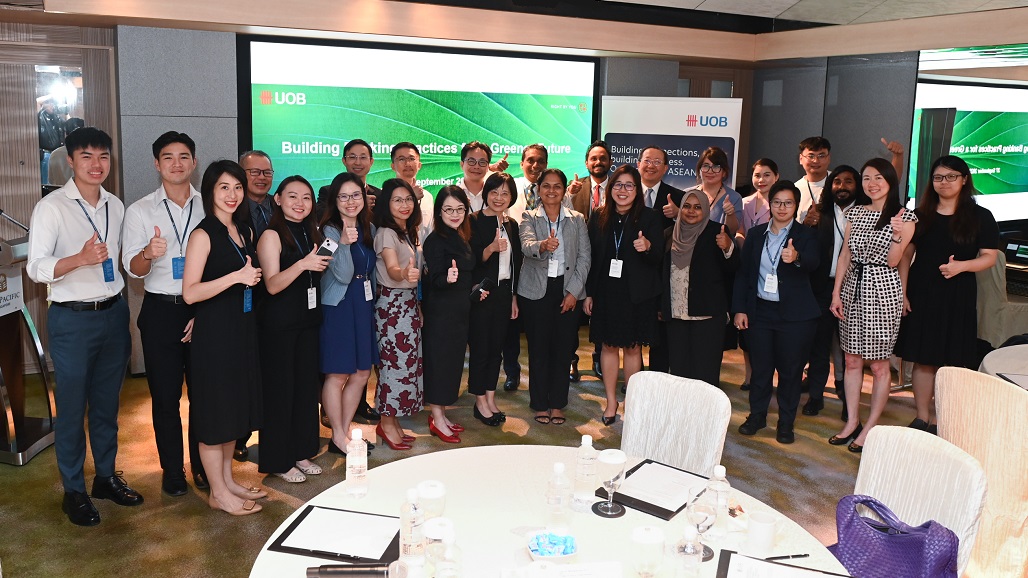

Leave a Reply